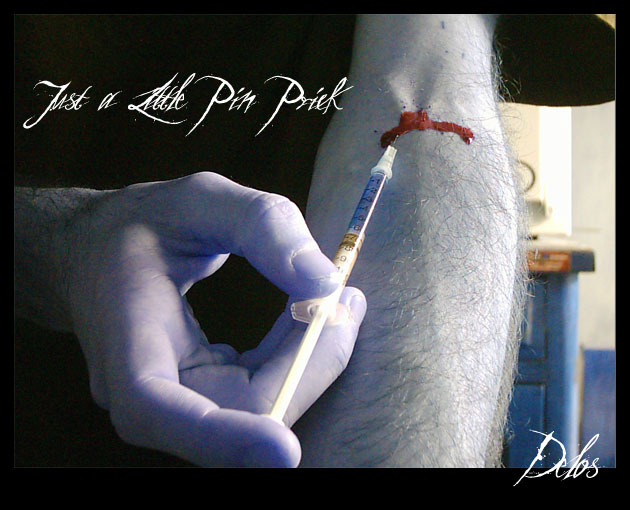After six months of investigations the infection was ultimately linked to people handling loose raw leeks and potatoes in their homes, said the Health Protection Agency (HPA), which has only now acknowledged the outbreak.
The cases began last December and continued until July. In total 250 victims – 100 of them under 16 – were left sick with vomiting and diarrhea. Of those, 74 needed hospital treatment. One unnamed patient, who the HPA said had underlying health problems, died.
In each of the past three years an average of 81 people across the U.K. have been infected with E coli O157 PT8.
"Our study showed a statistically significant association with raw loose leeks and potatoes from sacks, but these vegetables may not be the only source of contamination," said Dr Bob Adak, an  HPA gastrointestinal expert who led the multi-agency outbreak control team that investigated it.
HPA gastrointestinal expert who led the multi-agency outbreak control team that investigated it.
Soil on the vegetables is thought to have been the likely source of the E coli bacteria. "In this outbreak, which is now over, the vegetables could have carried traces of contaminated soil. It is possible people caught the infection from cross-contamination in storage, inadequate washing of loose vegetables, insufficient hand washing after handling the vegetables or by failing to thoroughly clean kitchen equipment, utensils or surfaces after preparing the vegetables."
A spokeswoman said the HPA did not alert the public to the ongoing outbreak because they did not know where it had originated and therefore could offer no useful public health advice.
And the sanitized press release nonsense ends here.
Potato and leek soup is a standard in my kitchen, using chicken stock made from the weekly roast chicken.
I’m not sure what else leeks are used for, and they can contribute to some fantabulous gas, but they are a mess to clean: dirt and soil is engrained throughout the white part of the vegetable. I give them a rinse under tap water and then slice for soup. But the risk is with cross-contamination – leeks are grown in soil and whatever microorganisms are within the white bits are going to drip on the counter and elsewhere.
Be the bug, follow the bug.
The folks at the U.K. Food Standards Agency whose idea of science-based verification is to cook meat until it is piping hot, have apparently decided that E. coli O157:H7 – the dangerous kind – found on or in leeks, is the consumers’ responsibility.
"This outbreak is a timely reminder that it is essential to wash all fruits and vegetables, including salad, before you eat them, unless they are labeled ‘ready to eat’, to ensure that they are clean. It is also important to wash hands thoroughly as well as clean chopping boards, knives and other utensils after preparing vegetables to prevent cross contamination,” said Dr Andrew Wadge, chief scientist at FSA.
No questions about what E. coli O157:H7 is doing on so many potatoes and leeks that 250  people get sick.
people get sick.
The Brits are so bad at communicating basic food safety information that FSA put out its own press release stressing the need for home hygiene because of “two recent E.coli outbreaks,” referring to the leeks and the German-based E. coli O104 sprout outbreak earlier this year which killed 53 and sickened over 4,000. People could have washed sprouts all they liked but it wouldn’t have done anything to control E. coli, especially if it was originally in the Egyptian seed, as is widely suspected.
Consumers, you are apparently the critical control point for microorganisms that will rip out your kidneys: FSA says, those leeks and potatoes, “although safe to eat if handled correctly, could have had soil on them containing harmful bacteria.”
Despite decades of food safety communication case studies and research to the contrary, the Brits are intent on forging their own top-10 stupid ways to talk about foodborne illness, with .jpg) special mention to mad cow disease, salmonella in eggs and proper cooking temperatures.
special mention to mad cow disease, salmonella in eggs and proper cooking temperatures.
If U.K. food and health types have a communications policy, it seems to be one of, no positive food, no public statement, no matter how many are dead or dying.
Why not say, as many other jurisdictions do, that an increase in a type of rare but dangerous E. coli has been noted, we’re not sure where it came from, but we’re trying to figure things out, and as soon as we know more, you’ll hear it first from us.
Is there any policy on providing the public with information about foodborne illness in the U.K.?
Stay comfortably numb (there’s a better vid of gilmore and waters earlier this year at http://youtu.be/hUYzQaCCt2o.
